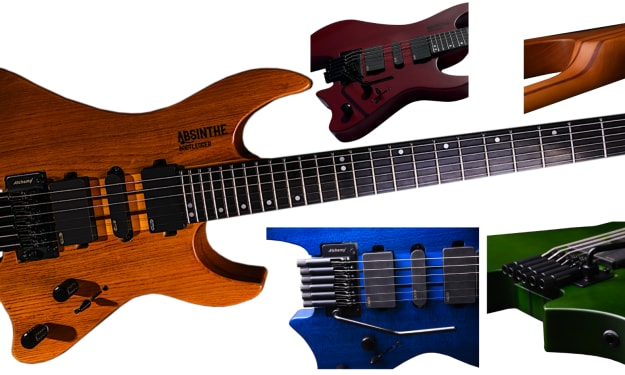Music & NFTs
Shaping the future of the Music Industry

The digital world has given birth to several new concepts that have transformed how we interact with music. One of the most recent innovations in the music industry is the use of non-fungible tokens (NFTs) to release and distribute music.
NFTs are unique digital assets that represent ownership of a particular piece of content or asset. In the case of music, NFTs can be used to represent ownership of a specific song or album. By creating and selling NFTs, musicians can offer fans a new way to invest in and engage with their music.
Here are some steps to refer to when releasing music as an NFT:
Choose a Blockchain Platform:
The first step when releasing music as an NFT is to choose a blockchain platform. Ethereum is currently the most popular blockchain platform for NFTs, but there are several others to choose from, including Binance Smart Chain and Algorand. Each platform has its own set of features and tools that can help musicians create and sell their NFTs.
Create an NFT Smart Contract:
Once you have chosen a blockchain platform, the next step is to create an NFT smart contract. A smart contract is a set of rules that govern the creation, ownership, and transfer of the NFT. You can either create a custom smart contract that includes specific terms and conditions, or you can use an existing template.
Mint the NFT:
The next step is to mint the NFT. Minting is the process of creating the NFT by uploading the music file to the blockchain and generating a unique token that represents it. Minting an NFT requires paying a transaction fee, which can vary depending on the platform you choose.
Set a Price:
Once the NFT has been minted, you can set a price for it. You can either set a fixed price or choose to auction it off to the highest bidder. It's important to note that the value of an NFT can be highly variable, and the price of an NFT can be influenced by factors such as demand, rarity, and the perceived value of the music.
List the NFT on a Marketplace:
The next step is to list the NFT on an NFT marketplace. There are several marketplaces to choose from, including OpenSea, Rarible, and SuperRare. Each marketplace has its own fees and requirements, so it's important to research and choose the platform that best fits your needs.
Promote the NFT:
The final step is to promote the NFT. You can promote it on social media, music blogs, and other channels to attract potential buyers and increase visibility. It's essential to engage with fans and create a buzz around the NFT to help generate interest and increase the chances of a successful sale.
While the process of releasing music as an NFT is relatively straightforward, there are several factors to consider when creating and selling NFTs. Here are some things to keep in mind:
Legal Considerations:
It's important to ensure that you have the rights to sell your music as an NFT. If you have a record label, you should consult with them to ensure that there are no legal issues that could arise from selling your music as an NFT.
Intellectual Property Rights:
You should also ensure that you have the intellectual property rights to the music you are selling as an NFT. You should consider registering your music with copyright organizations to ensure that you are protected against any copyright infringement.
Security:
NFTs are susceptible to hacking, so it's important to ensure that your NFTs are secure. You should consider using a reputable blockchain platform and implementing security measures such as two-factor authentication to help protect your NFTs.
Risks:
There are several risks associated with releasing music as an NFT. One of the biggest risks is that the market for NFTs is still relatively new and untested. This means that the value of an NFT can be highly volatile and subject to rapid changes in demand and market conditions. Musicians who release their music as an NFT may not receive the expected returns, and they may even lose money if the market for NFTs collapses.
Another risk associated with NFTs is that they can be used to launder money. Because NFT transactions are relatively anonymous, they can be used to move money around without being detected. This has led to concerns that NFTs could be used for illegal activities such as money laundering and tax evasion.
Despite these risks, the use of NFTs in the music industry has the potential to offer new opportunities for musicians to engage with their fans and monetize their music. By following the steps outlined above and considering the risks and challenges associated with NFTs, musicians can explore new avenues for distributing their music and building a loyal fanbase.
The use of NFTs to release and distribute music is a relatively new concept that is still evolving. While there are risks associated with releasing music as an NFT, there are also several potential benefits that make it an attractive option for musicians.
One of the key benefits of NFTs is that they allow musicians to directly engage with their fans and offer them a new way to invest in and support their music. By creating and selling NFTs, musicians can build a loyal fanbase that is invested in their success and has a stake in their future. This can help to create a sustainable business model that is less reliant on traditional revenue streams such as streaming and touring.
NFTs can also help to increase the perceived value of a musician's music. By creating a limited supply of NFTs, musicians can make their music more exclusive and valuable. This can help to increase demand for their music and drive up the price of the NFTs. Additionally, NFTs can be customized and bundled with exclusive content such as artwork, videos, and behind-the-scenes footage, further increasing their value to fans.
Another benefit of NFTs is that they offer a new revenue stream for musicians. While traditional revenue streams such as streaming and touring can be unpredictable and subject to market conditions, NFTs offer a more stable and predictable income stream. Because NFTs are unique and cannot be duplicated, they have the potential to retain their value over time, making them a valuable asset for musicians.
In addition to these benefits, NFTs can also help musicians to gain more control over their music and how it is distributed. By creating and selling their own NFTs, musicians can bypass traditional gatekeepers such as record labels and distributors, allowing them to retain more ownership and control over their music.
The use of NFTs to release and distribute music offers a new and exciting opportunity for musicians to engage with their fans and monetize their music. While there are risks associated with NFTs, the potential benefits make it an attractive option for musicians who are looking to build a loyal fanbase and gain more control over their music. By carefully considering the legal, financial, and technical aspects of releasing music as an NFT, musicians can explore new avenues for distributing their music and building a sustainable career in the music industry.
About the Creator
Indie Music Stream
Indie Music Stream is dedicated to helping independent artists. We believe that every artist deserves a chance to have their music heard. We are committed to providing as many resources as possible.
Power to the creators!
#IndieMusicStream






Comments
Indie Music Stream is not accepting comments at the moment
Want to show your support? Send them a one-off tip.